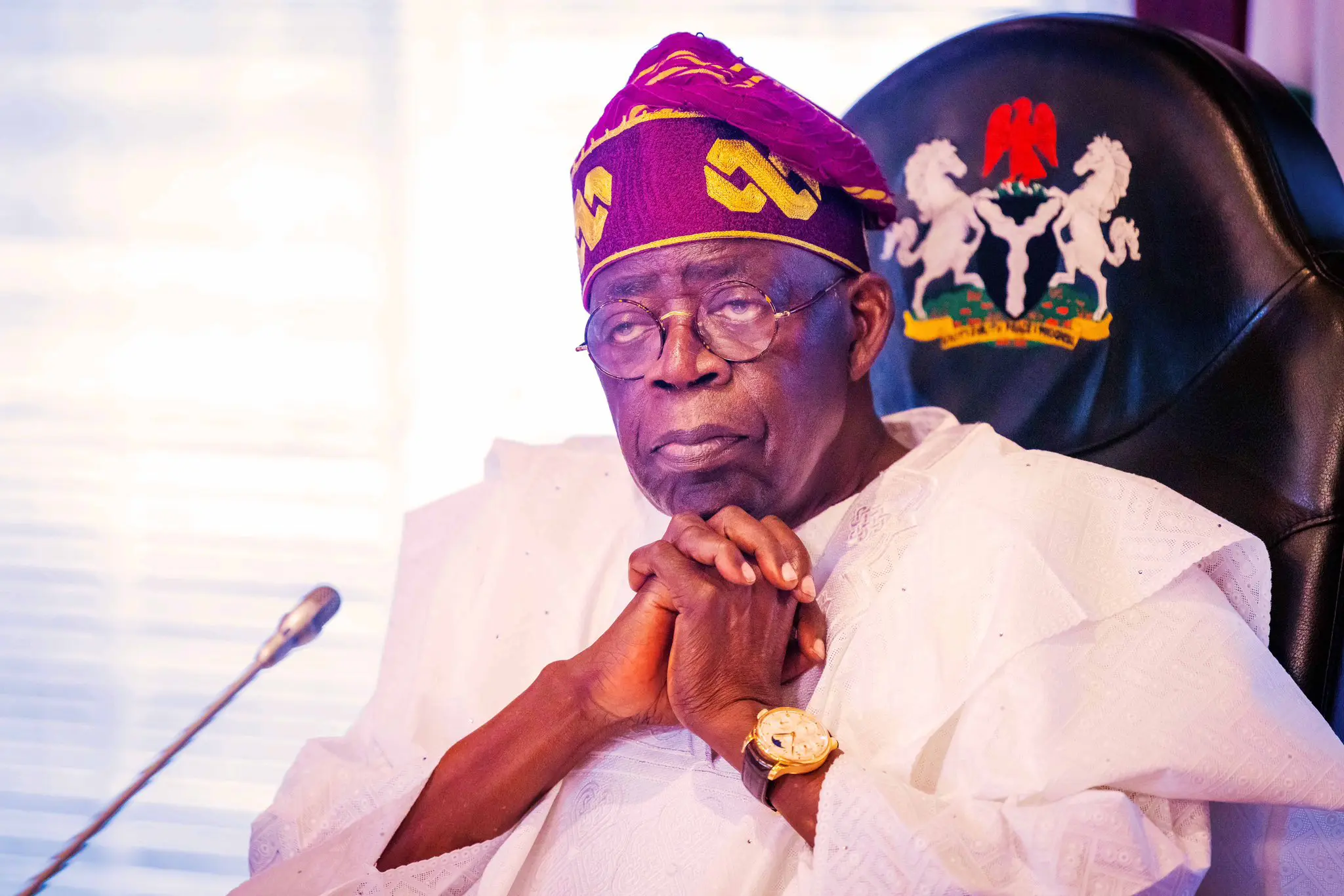Reverse fuel price increase
Last week, the Nigerian National Petroleum Company Limited (NNPCL) announced an increase in the pump price of the Premium Motor Spirit (PMS), more popularly known as petrol, from N568 to N617, to N855 to 897 per litre depending on location. This increase came as Nigerians across the country had been experiencing days of fuel scarcity […]

President Tinubu
Last week, the Nigerian National Petroleum Company Limited (NNPCL) announced an increase in the pump price of the Premium Motor Spirit (PMS), more popularly known as petrol, from N568 to N617, to N855 to 897 per litre depending on location.
This increase came as Nigerians across the country had been experiencing days of fuel scarcity spending frustrating hours and days in long queues at filling stations hoping to fill the tanks of their vehicles. The scarcity led to an exponential rise in the price of the commodity at the black market where the price of a litre ranged from N1000 to N1500 depending on location.
In a statement explaining the reasons for the price increase, the Chief Corporate Communication Officer of NNPCL Olufemi Soneye, stated ‘’The market has been deregulated, meaning that petrol prices are now determined by market forces rather than by government or NNPCL. Additionally, the exchange rate plays a significant role in influencing the prices.’’
Justifying the increase, President Bola Tinubu, speaking on the sideline of his working tour to Beijing last Friday, said it was a ‘’bold and unprecedented decision’’ necessary for Nigeria’s growth. The President’s statement made through his Special Adviser on Media and Publicity stated that ‘’Nigeria is going through reforms and we are taking very bold and unprecedented decisions….What is the critical part to get us there if we cannot take hard decisions to pave the way for a country that is blessed and so talented’’.
- Stop patronising Pastor Fufeyin’s ‘miracle’ water, soap, NAFDAC warns
- 48 people, 50 cows killed in Niger road accident
If Nigerians do not appear impressed by President Tinubu’s admonitions on the need to accept the latest fuel price increase as a necessary sacrifice for a better future, it is because having repeatedly heard this with little positive results, they are not convinced. For instance, the fuel price increase amidst the scarcity of the product leading to long queues and unofficial hike in the price of the product in the black market comes as a double whammy to Nigerians; they cannot get the commodity to buy and they are now saddled with an exponential increase in the official pump price.
This also comes against the background of the many revelations about untoward happenings in the NNPCL which make Nigerians not only sceptical about the reasons adduced for the increases but also the calls for them to bear the resultant hardship that comes with the measure. Nigerians simply cannot fathom the reasons why President Tinubu as the substantive Minister of Petroleum seems not to bother about the serial reports of the inefficiencies in the NNPCL, which is the nexus of the intractable issues in the Nigerian oil and gas sector. Questions like why have our four refineries built at such great cost been allowed to run aground for years now? What is hampering the coming onstream of the Port Harcourt Refinery having been completely revamped and ready for operations? Why do we keep importing oil when we are one of the largest producers of the commodity in the world? These and many questions have been asked over the years repeatedly by Nigerians without answers.
When President Tinubu announced the removal of subsidies in his inaugural speech on May 29, 2023 Nigerians expected that this was going to be followed by a fundamental restructuring of the NNPCL to bring it in tune with the realities of the new dispensation.
President Tinubu’s statement justifying the increase in the price of petrol and his call on Nigerians to bear the hardship that comes with it rings hollow if he cannot rein in the reported excesses of the NNPCL which is where the root of the problem is.
Accordingly, we join the majority of Nigerians, including the Nigeria Labour Congress, (NLC) and Civil Society Organisations (CSOs) in rejecting the recent price increase and call on President Tinubu to direct NNPCL to reverse the measure. Coming after the recent nationwide hunger protests over the prevailing hardships in the country, the Nigerian people are bound to view the increase as insensitive and a provocation.
Nigerians are already tense and edgy as it is as many are sliding into poverty as a result of the debilitating conditions in the country. The increase is likely to push more people into poverty thereby compounding the situation in the country. It will not help the process of reforms which the president talks about if the people for whom it is made are made to suffer unnecessarily for the inefficiencies and infractions of those responsible for the implementation.
In the overarching interest of social harmony and national well-being, President Tinubu, as supervising minister of the oil and gas sector, should step up to the responsibility he owes Nigerians by reversing the increase in fuel prices without delay.
